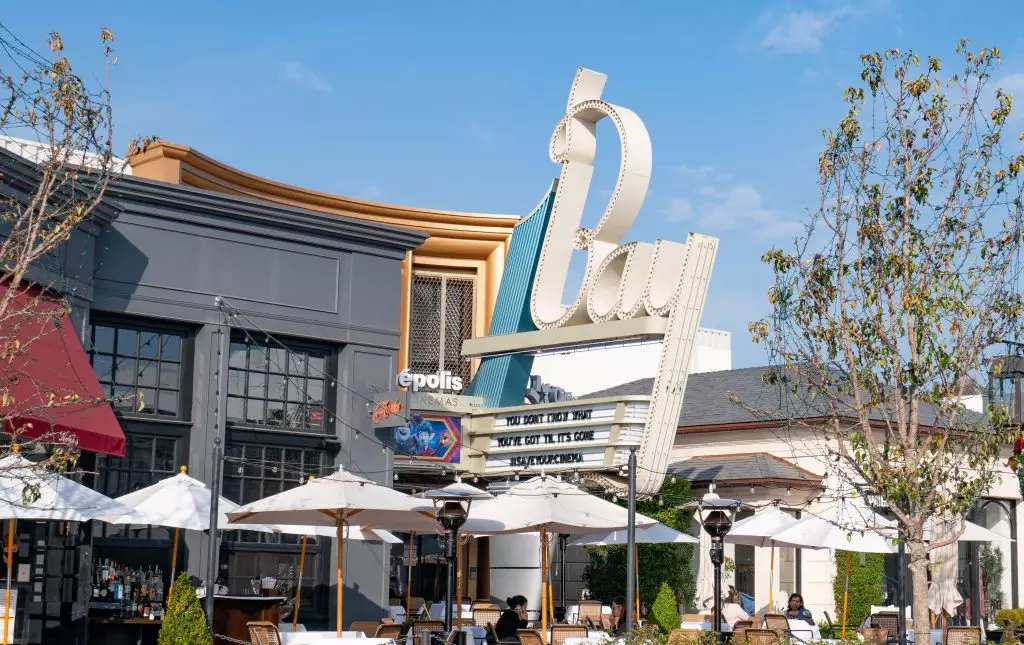The recent wildfires in Pacific Palisades have resulted in significant disruptions to the movie theater landscape in Los Angeles, historically recognized as the hub of the American film industry. The implications of these wildfires extend beyond mere physical closures; they pose broader challenges for a community reliant on cinema as a primary source of entertainment and cultural engagement.
As the fires raged, approximately ten theaters across Los Angeles were forced to temporarily close their doors. Notable venues affected include the AMC Americana in Glendale, AMC Universal City Walk, AMC Topanga 12, Regal Sherman Oaks, and more. The abrupt nature of these closures has left many cinephiles in the lurch, with uncertain reopening dates adding to the unease. The impact is particularly severe given that Los Angeles is not just a movie market; it’s the heart of film production and exhibition in the U.S. Cinema closures during a pivotal time in the theaters’ post-pandemic recovery can stifle momentum that had begun to build within the industry.
In the midst of this chaotic landscape sits the historic Bay Theater, situated in a shopping complex owned by Rick Caruso, a notable local developer and mayoral contender. The Bay Theater’s operational ties to Netflix only heighten the attention surrounding its fate. While Caruso confirmed that the theater itself was spared from direct fire damage, the shopping center found itself embroiled in a section of the region where flames raged fiercely. The closure of such an iconic venue paints a grim picture of the challenges faced by theaters during this tumultuous period, adding a layer of apprehension to the already beleaguered film industry.
The emotional and financial ramifications of these closures extend to audiences who eagerly anticipate new releases. With evacuation orders in place across various parts of Los Angeles and anxiety permeating the community, the allure of the movie theater experience has diminished significantly. This comes at a time when the box office has been attempting to bounce back; the Los Angeles market alone contributed more than $681 million in gross revenue last year, accounting for roughly 8% of total domestic box office earnings. In light of recent events, anticipated ticket sales for this week and the coming weekend appear bleak, illustrating the precarious relationship between cinema attendance and civil crisis.
Amidst these dark clouds, several new releases attempt to navigate the turbulent waters. Lionsgate’s “Den of Thieves 2: Pantera,” for instance, is projected to earn between $11 million and $13 million. It finds itself vying for box office supremacy against festive holdovers like “Mufasa” and “Sonic the Hedgehog 3,” both anticipated to steeply decline in earnings. Meanwhile, Paramount’s Robbie Williams biopic “Better Man” is set to expand to approximately 1,200 theaters, although projections suggest a modest intake. Such competition for ticket sales emerges within a landscape marred by uncertainty, underscoring the hurdles that filmmakers and distributors face during calamities.
The ongoing wildfires have compelled the cancellation or postponement of several high-profile industry events, including premieres for films like Universal’s “Wolf Man” and Amazon MGM’s “Unstoppable.” Such events serve as vital marketing platforms not only for upcoming releases but also for reinforcing relationships within a closely-knit industry. With ceremonies like the Critics Choice Awards rescheduled to a later date due to safety concerns, the immediate future for Hollywood looks uncertain.
In the wake of the Pacific Palisades wildfires, the Los Angeles cinema community is grappling with the twin challenges of recovery and resilience. Although some locations remain operational, the overall sentiment suggests a lingering vulnerability in the face of elemental crises. As the industry looks ahead, the hope remains that the spirit of cinema can endure, adapting and evolving even when faced with adverse circumstances. The survival of local theaters, the heart of the moviegoing experience, will remain a focal point as Los Angeles endeavors to heal and return to its status as the epicenter of film culture.

